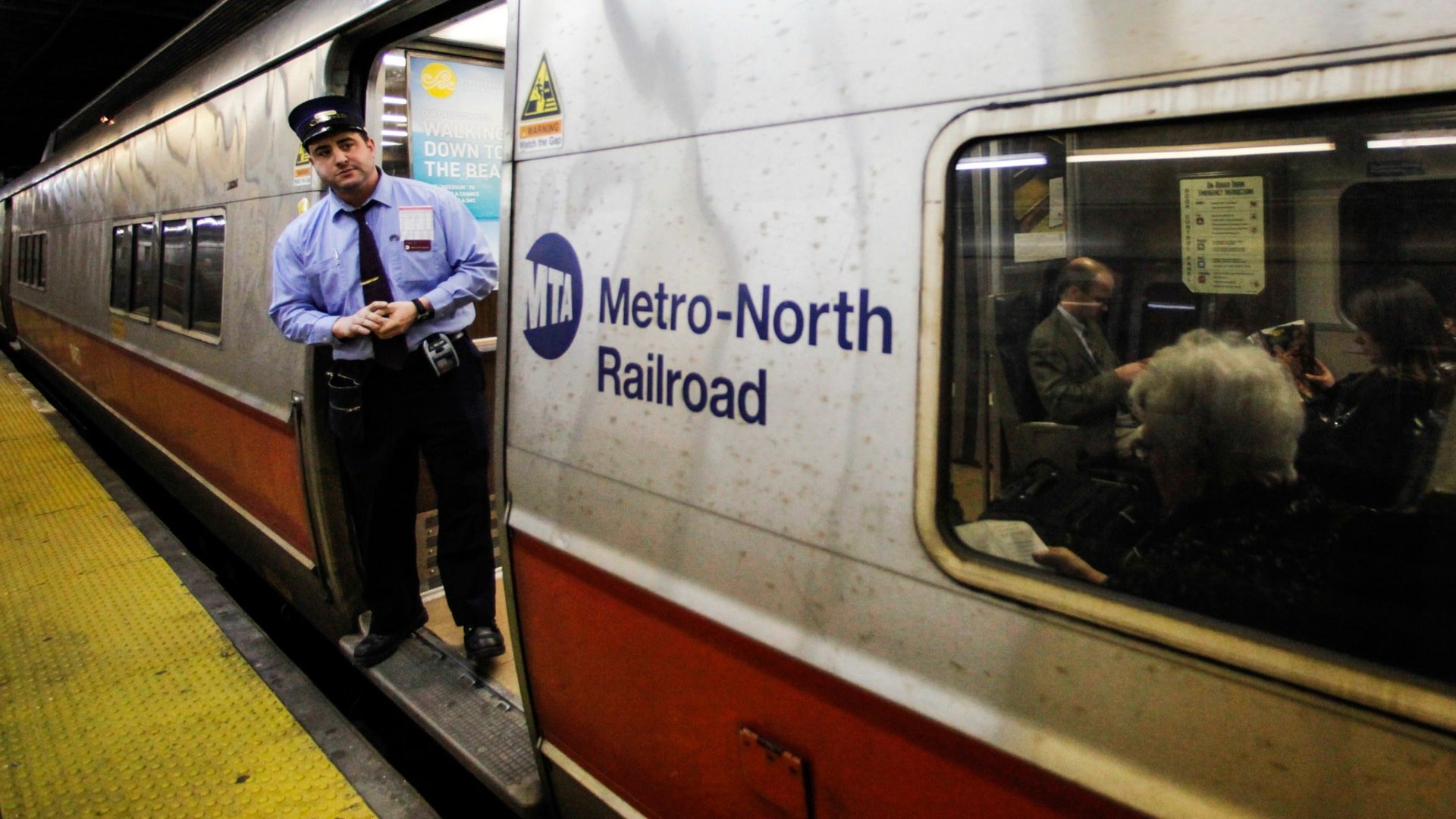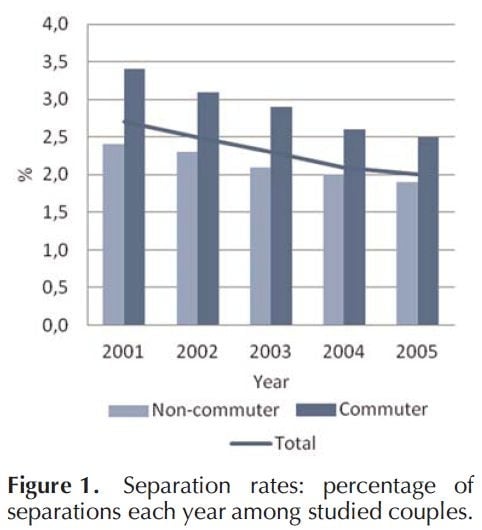People with long commutes have a 40% higher risk of separating from their spouses
Another day, another drawback of a long commute. Aside from their ability to bring us to higher-paying jobs, lengthy trips to work offer very few beneficial side effects. Our stress levels go up, our sleep levels go down, and our interactions with friends and family go scarce. And now it seems our marriages—or, at least, our committed partnerships—can go awry, too.


Another day, another drawback of a long commute. Aside from their ability to bring us to higher-paying jobs, lengthy trips to work offer very few beneficial side effects. Our stress levels go up, our sleep levels go down, and our interactions with friends and family go scarce. And now it seems our marriages—or, at least, our committed partnerships—can go awry, too.
That’s according to new work from researcher Erika Sandow of Umea University in Sweden, set for publication in the British journal Urban Studies, which found that couples with longer commutes are more likely to break up than those without them:
To summarise, one might expect the social costs of long-distance commuting to reduce the quality of a relationship in many ways and thus increase the risk of separation. The statistical results from these analyses not only confirm such assumptions about social costs but can also reveal other and more unexpected results regarding the effects of long-distance commuting on relationships.
Sandow reached her conclusions by analyzing a unique dataset that tracked millions of Swedes across ten years, from 1995 to 2005. First she separated out all the people who were either married or cohabitating, then she split that group two ways: people who commuted one-way more than 45 minutes, and people who did not. Previous work has found that 45 minutes is more or less the threshold at which the maladaptive side of commuting presents itself with increased vigor.
About 11% of all couples in the analysis had separated by 2000. But while 14% of couples with one or more long-distance commuters broke up, that was only true for 10 percent of other couples. On average, then, long-distance commute couples had a 40% higher risk of separating than did couples whose trip to work was relatively short. (For the sake of simplicity, Sandow calls this latter group “non-commuters.”)

Digging deeper into the data, Sandow found some notable wrinkles. When people commuting a long way for a long time—in this case, more than five years—their relationships actually proved much stronger. This separation rate for persistent commuters, at 11%, wasn’t much different from the 10% of so-called “non-commuters” noted above. Meanwhile, separation was also less common if one partner had been a long-distance commuter before the relationship began.
Both these findings suggest that some people may simply acclimate better than others to a long trip into the office. They may also be a sign of what Sandow calls a “customization process”—the development of strategies to handle the stress and strain of long commutes so they don’t interfere with a person’s home life.
Some couples had a better chance of making it when the woman was the partner who commuting a long way. Compared with women who commuted a short way, women who commuted a long way for more than five years had an 8% reduction in odds of being separated. In simpler terms, couples handle the stress of long commutes better when it’s the woman who bears most of the commuting burden.
Where the couples lived within Sweden also played a role. While long-commuting men in metropolitan areas broke up more than other men in the city, the reverse was true for long-commuting women. As it happens, people in rural regions had the highest separation rates, for reasons that left Sandow a little stumped.
Now for the caveats. The biggest, and in many ways the most troublesome, is that it’s impossible to tell from this data which couples would have separated regardless of their commute. What seems safe enough to conclude for now is that if you’re the type of person whose long commute bothers you in the first place, there’s a good chance it will end up bothering your relationship, too.
Eric Jaffe is a contributing writer to The Atlantic Cities and the author of The King’s Best Highway: The Lost History of the Boston Post Road, the Route That Made America
This originally appeared at The Atlantic Cities. More from our sister site:
The odd link between commute direction and marital satisfaction